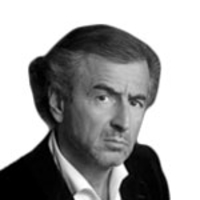I remember Sheikh Mujibur Rahman, the father of Bangladesh, a man of great piety, confronted with the tragedy of tens of thousands of women raped by Pakistani soldiers during the months of war in 1971 and then banned from society. When he made the decision—without precedent in the Muslim world or elsewhere, to my knowledge—to declare those women birangona, national heroines, I was just a little more than 20 years old. That day remains one of the most vivid memories in my life as an activist.
I remember Alija Izetbegovic, who, in the 1970s, had penned an “Islamic Declaration” tinged with fundamentalism. When the Bosnian war erupted, a new Izetbegovic appeared, the political and military leader of a resistance movement whose multiethnic and multifaith banner he would hold high to the end. And I remember that day in August 1992 when he dispatched an elite unit to save from Serbian rockets the illuminated Haggadah of Sarajevo, one of the oldest and most beautiful in the world, saved once before by an imam from the Nazi rampage, saved for the second time in 50 years by Izetbegovic.
I remember Malika C., a Muslim woman and a feminist, explaining to me in Algiers, while the fundamentalists were cutting off heads as if clearing a forest, that the Prophet was a friend to women and their faces and that, according to the Qur’an, or, at any rate, certain passages in the Qur’an, only his wives were obliged to cover themselves. Islam without obscurantism; Islam without demotion of half of humanity. Don’t listen, she told me, to those pro-veil fanatics who are digging Islam’s grave.
I remember Commander Ahmad Shah Massoud, in 1998, in his sanctuary in Panjshir where Le Monde had sent me to interview him. The very first day, a Friday—he had just returned from inspecting the edges of the Shomali Plain and had invited me to share his frugal dinner—he showed the exquisite sensitivity of sending someone to ask me how strictly I observed the restrictions covering activities on the evening of Shabbat.
I remember Mohammed VI of Morocco, Cherifian king and Commander of the Faithful, inaugurating his reign with a reform of the Moudawana, the Moroccan family code, which, by releasing wives from their obligation to obey, permitting them to divorce when they wished to, and, in case of separation, allowing them custody of the children and a share of the marital assets, did more for the cause of women in just a few months than many lay systems have done in such a short time.
I remember Milana Terloeva, whom I met at the home of André Glucksmann after the Second Chechen War and the publication of her moving Danser sur les ruines. It was the time of Mashkadov against Bassaev, of the Islam of kindness and moderation standing up—before being temporarily defeated—against the murderous ideology of the Wahhabis. Strait is the gate of destiny, though never irretrievably closed.
I remember Yasser Abed Rabbo, who 12 years ago, with his Israeli friend Yossi Beilin, came up with the Geneva Plan that, even today, defines the fair and just parameters of any future peace between the estranged brothers. We were in an airplane bringing us back to Paris from Morocco; in few hours we were due to appear together at a meeting. He was explaining to me, with great gravity and concentration, his fists outstretched as if he were pulling on two imaginary ropes, tugging them with him into a chaotic but promised land, that his Palestine would be secular and tolerant, an island of democracy in a region beset by the fever of extremism.
I remember Salwa Bugaighis, the courageous lawyer and advocate for women’s rights, human rights, whose exceptional bravery cost her her life. I remember her telling me on the first day of my first trip to Benghazi that she was joining the revolution to topple the twin curses of Kaddafism and radical Islam.
I remember Hassen Chalghoumi, the imam of Drancy, after the trip he made to Jerusalem with some of his fellow French imams. I remember his account of Yad Vashem, the uniqueness of the Holocaust, and the genius of a Judaism of which Islam was, in his view, like Catholicism after Vatican II, a sister religion.
I remember Abdelwahab Meddeb one evening in Tangier, on the coast of that millennia-old Mediterranean that the Arab world shares with Europe. For this wise and learned man, this physician in matters holy who knew the illness of which Islam had to be cured, democracy was a word that held an almost religious meaning!
None of these 10 individuals is the incarnation of Islam, of course.
None will cause me to forget that it is also in the name of Islam that, from Nigeria to Paris, from Niamey to Rakka and Mosul, people torch, torture, and kill.
And I know that at the moment it is this other Islam, the Islam of the ultimi barbarorum that, alas, now holds the advantage.
But that is the point.
Islam against Islam.
A struggle with no quarter between the two.
For those terrified by the specter of the war of civilizations, this is the only debate worth having.
I look on these 10 figures as beacons, as brief but bright lights burning into the depth of the shadows to attest that the intellectual and moral reform upon which our common survival depends is possible.
Possible, yes—to a degree commensurate with the number of believers who refuse to resign themselves to disaster.
Translated by Steven Kennedy





